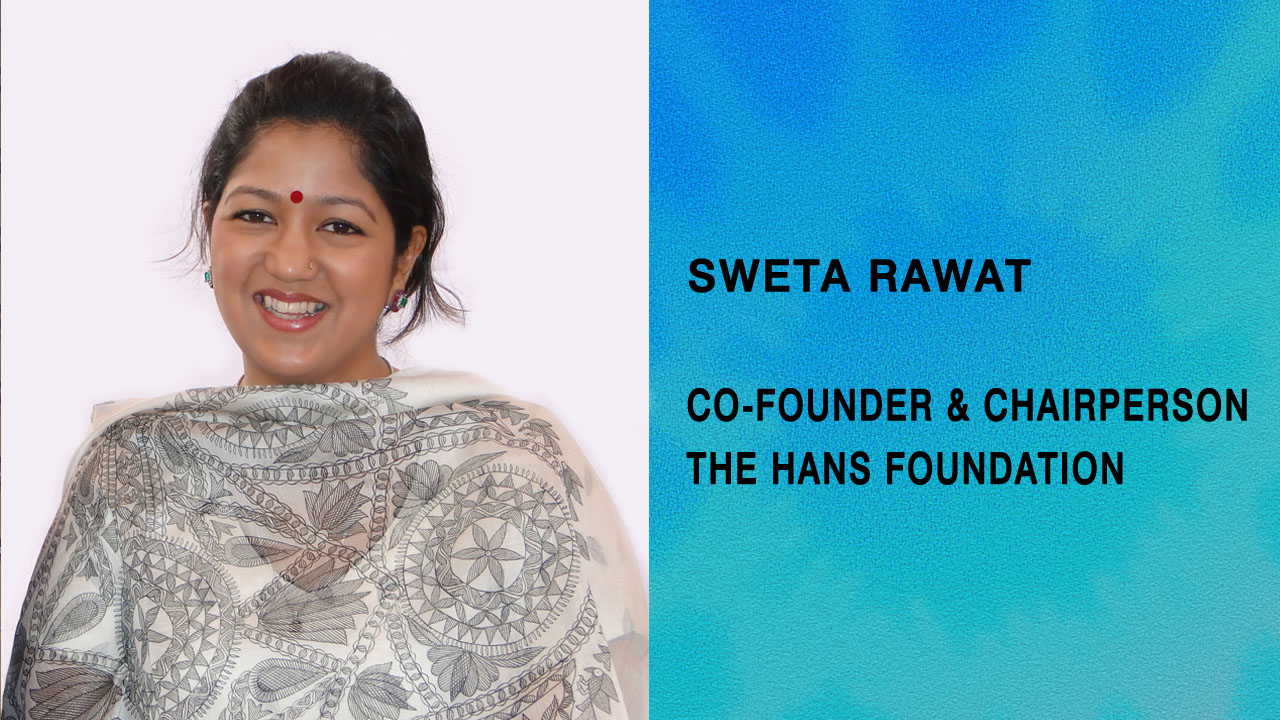CSR has been mandated by law but there is no specific process to streamline the CSR funds to the needs of the country. This is the major deterrent in the successful implementation of CSR, according to Sweta Rawat, Chairperson and Co-founder, The Hans Foundation (THF). She also says that there is a need of creating awareness in the community about the challenges and programs that are to be focused upon by the corporate houses. “The biggest challenge is lack of organizational commitment to CSR. Corporates in their own ways have been contributing to the foundation of CSR in India; however, the efforts are not synchronized. There is a need for a strategic national level policy framework with the involvement of all stakeholders, which would ensure that all the efforts made by companies, individuals, NGOs, and the government are integrated to create a snowball effect.,” says Sweta. The Hans Foundation, a non-profit charitable organization based in New Delhi was founded by Sweta Rawat with her family along with Manoj Bhargava a Indian born US based Entrepreneur and Philanthropist. The organization was founded in 2009 with an aim to provide equal access to quality facilities for healthcare and education, and to provide a dignified livelihood to all people, regardless of age, gender, caste and religion. The foundation focuses on a large variety of needs like agriculture, healthcare, income generation, education, skill training, reaching out to marginalized section to supporting disability projects. In an exclusive interview with The CSR Journal, she talks about CSR in India. Listing the challenges that CSR faces she believes there is lack of awareness in the community about CSR. “The fact that negligible awareness efforts have been made by corporates or governments to sensitize communities about CSR especially about how they can be a part of the whole process. Owing to little or no knowledge about CSR these communities which are major stakeholder have not been given an opportunity to participate or contribute to these programs.” According to her, lack of transparency is also a hurdle that needs to be overcome. “Most NGOs do not make adequate efforts to disclose information on their programs, coupled with audit issues, impact assessment and utilization of funds. These practices negatively impact the process of trust building among the companies which is a key to the success of any CSR initiative.” The major challenge has been the capacity of NGOs working in the rural and remote areas. As a Foundation, we aim and continue to work in most unreachable and inaccessible areas through local NGOs. However in most cases, these NGOs lack capacity and are not able to develop a long term vision. These organizations also face numerous challenges in terms of human resources, infrastructure, focus on sustainability and scalability of projects, management and utilization of funds, proper documentation etc. To overcome this, THF invests in capacity building of the organization. This is done by extending support to NGOs for training of human resources, which is outside the purview of the project being undertaken. We also extend support for financial audits to facilitate transparent and organized accounts, exercising a stringent project monitoring system from our end. Also we came across a number of organizations that were doing similar work in a single area without knowledge of each other. THF created platforms for these organizations to interact with each other, learn from each other’s challenges and for collaboration. Visibility was also a major challenge in several cases. The partners’ monopolized visibility to only their organization and overlooked THF’s support. To overcome this, it was reiterated that it was a joint effort and due recognition to be provided to the funder as well the executing NGO. A media policy was also drafted and shared with all the partners.
Lack Of Organisational Commitment To CSR Deters Its Successful Implementation: Sweta Rawat, THF
Related Articles
Wild Swans Author Jung Chang Reveals China’s Hidden Truths
Author Jung Chang reveals how Wild Swans chronicled three generations, exposing hidden China stories, family struggles, women’s lives, and emotional truths that reshaped global...
Shalini Passi on Her Journey as an Author and Philanthropist
In this exclusive interview with The CSR Journal, the incredible Shalini Passi opens up about her journey as an artist, philanthropist, and now an...
“Men Are Victims Too”: The Dark Side of India’s Justice System ft Nandini Bhattacharjee
The CSR Journal sits down with one of India’s strongest voices for men’s rights, Nandini Bhattacharya, President of the All Bengal Men’s Forum, she...


